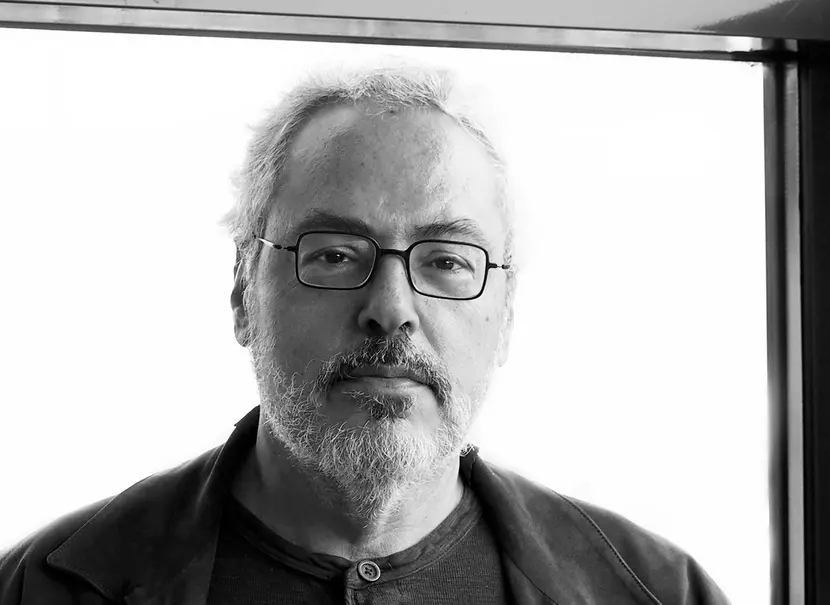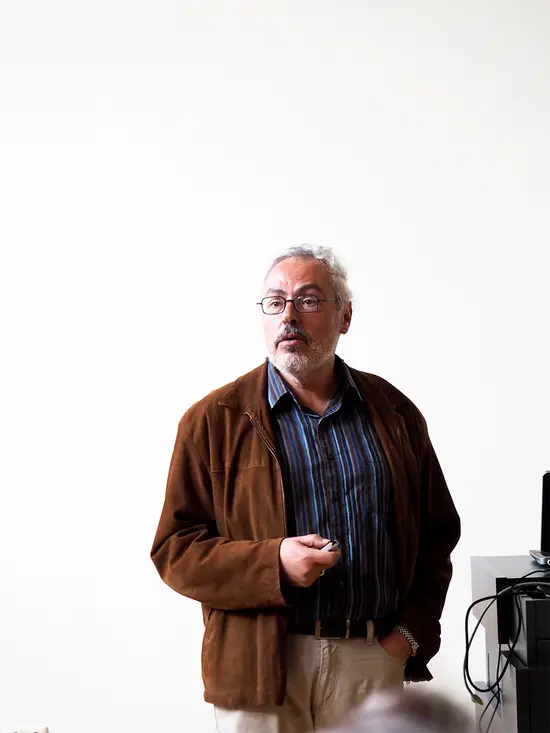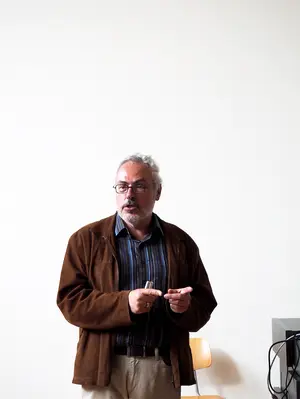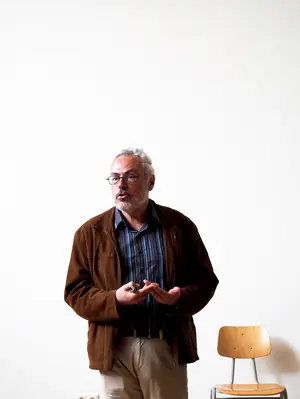RESEARCH TALK ▼
PICK UP THE PIECES AND GO - THE ENGINEERING WAY
AN INTERVIEW WITH GEORGE TSEBELIS | by Katrin Bernsdorff and Theresa Schmitz

:::::::::::::::::::::::::::::::::::::::::::::::::::::::::::::::::::::::::::::::::::::::::::::::::::::
SHORT PROFILE
Name: George Tsebelis
Field: Political Science
Country: United States of America
Occupation: Anatol Rapoport Collegiate Professor of Political Science, University of Michigan
Research Interests: Comparative Government and Politics, Political Economy, Formal Modelling
:::::::::::::::::::::::::::::::::::::::::::::::::::::::::::::::::::::::::::::::::::::::::::::::::::::
▐ Identifying problems and finding the solutions - every endeavour and career step of George Tsebelis is motivated by this simple, yet fundamental, motto. He traces this back to his strong background in engineering: "What engineers do is that they learn to solve problems, and that is what you do when you are doing research. […] Academia is a series of puzzles. Once you see it that way, you need to address them in 'the engineering way'. If someone tells an engineer: 'There is no building here. Can you build a building that fits this space?' You can't say that you can't do it, you have to find a solution."
Currently, Tsebelis is Anatol Rapoport Collegiate Professor of Political Science at the University of Michigan. His path here was a rather intricate one. The academic career of the Greek-born researcher began with an Undergraduate Degree in Engineering in Athens and an Undergraduate Degree in Political Science in Paris. Here, he discovered that he was studying Political Science "the American way" – using a game theoretical approach. In France, his advisors told him that if he wanted somebody to understand his work, he would need to go to the US. Reviewers of his work were even more critical in their rejections: "The people who were judging my papers, the experts of France, were saying: 'We don't recognize this. This is American Political Science and should therefore never be published in any journal that has anything to do with reality.'" Feeding on this rejection, he first stayed in Paris and received a doctorate in mathematical statistics from the Pierre and Marie Curie University. Having obtained the necessary tools to solve the problems he was interested in and the ability to solve them his way, he moved to the US and received a doctorate in Political Science from Washington University in St. Louis.
"I was very interested in politics because I was an activist when I was young [...]. I had started reading game theory books and how they apply to political science and I wanted to do that. When I was in France I asked my advisor: 'Can you help me understand that?' and he said: 'I don’t know.' And I said: 'You are the most famous lecturer in France. If you don't know it, who does?' And he said: 'In France, nobody. You have to go to the United States.' And so he put the perspective in my mind and I then started wanting to go to the US and do the things I was interested in and which I could only find there."
He has framed a rejection letter from a journal in his office at UCLA, to show to his students how brutal the rejection experience can be. He uses it as a tool to show how a rejection can be used as a driving force for a bigger success (in his case a book). Tsebelis' trajectory has taught him that "You don't hit a winner on your first try […] but you need to have the perseverance to continue". Trial and error has coloured his entire career. Discovering that studying the EU instead of only France increased not only his knowledge of a more diverse range of countries but also presented a much larger pool of opinions and problems, he began applying his knowledge to EU countries - this being the only conscious career decision he ever made, he maintains. His 'trial and error' method is one of the core components of his success: "If you get rejected once but you believe in (your idea) then you can submit it again and ultimately, ideas last. If you have a good one, then you are fine."
"So you have to know that it is a very competitive business and you can get very unkind comments some of the time. And you have to pick up the pieces and go on.

Finding topics of study has never been a problem for Tsebelis. Constantly on the look out for potential problems – be it joining selection committees or being a committed teacher – the first step of being a researcher is having an eye for problems. And then, regardless of the impact of the results or its effect on his or others' previous beliefs, solving it is his top priority. On one occasion, he addressed the problem of the paradox of non-voting. His belief was that voting makes absolute sense but the paradox is that a single vote has very little impact, therefore voting is not rational in rational choice theory. Having found the answer, he approached his advisor who asked him to explain it to him and consequently write a paper outlining his solution. However, having solved the problem at hand, he had no interest in writing a paper: "I've solved the problem, there's no need to write it down." Having written the paper upon persuasion by his supervisor, it was consequently rejected from a number of different journals. One rejection came with a note: 'Ask the author whether I can use the idea because I am writing a paper and could really use the idea'. Tseblis concludes: "That is a big advantage of the whole field, that ideas last. And if you have a good idea then you are fine. Even if they don't recognize it immediately."
"If it is a big problem and you have found a solution that is success."
Yet, there is more to sucess than having the right idea and the perseverance to get it published. To become a well known reseacher, Tsebelis had to master translating the complexity of his ideas into an understandable language. Trying to understand essentially how political institutions work, in his first draft of "Veto Players" he came up with a rather complicated way to find the common link. When approaching his colleagues they shrugged their shoulders saying 'What are you talking about? This is completely incomprehensible and why are you wasting your time doing something that no one understands?' Tsebelis got the message:"They were telling me that it’s difficult. They don’t care whether it’s right or wrong, it’s not understandable and they said I must have another way to express it so people will understand so they know how things work. And then I got the idea for Veto Players. And I expressed the same thing in a much more understandable language and that was a big idea. Because it united things that other people understood as separate. Like presidentialism or parliamentarism, bicameralism or unicameralism, few parties or many parties or things like that. Everybody understands that and this is probably the most well known idea that I had." ◼
// Interview: Katrin Bernsdorff / Editing: Theresa Schmitz, Katrin Bernsdorff
........................................................................................................................................................
MAIN PAGE | CONTACT | LEGAL | PRIVACY POLICY | DATENSCHUTZ | IMPRESSUM
© Bamberg Graduate School of Social Sciences
Image Credits: © Bamberg Graduate School of Social Sciences

